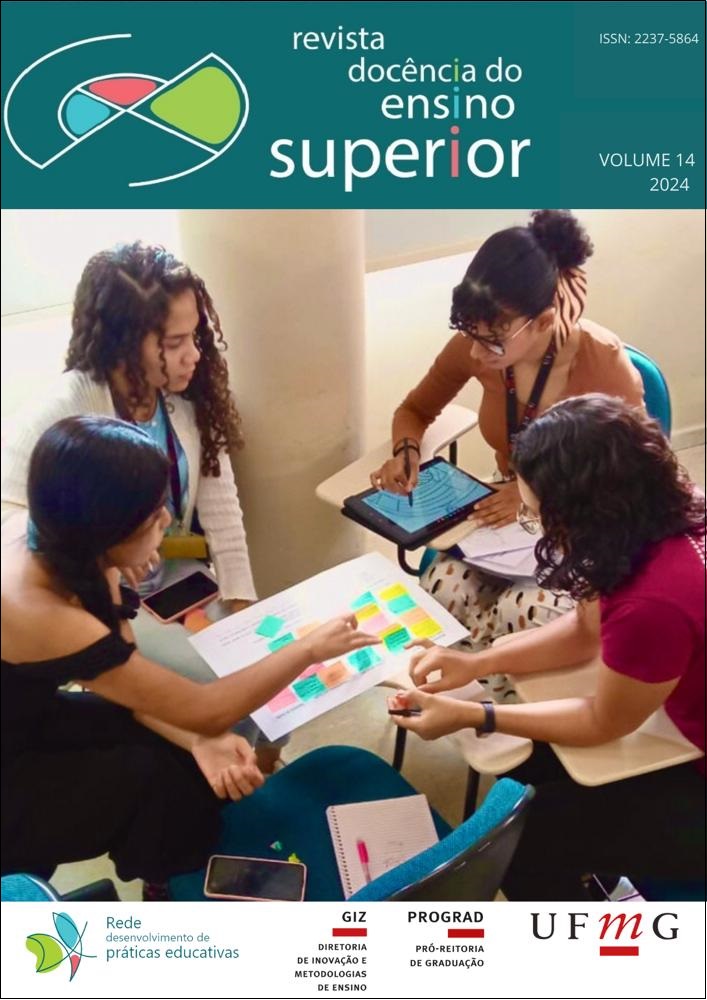Returning to the "new normal"
challenges, opportunities, and paradoxes of returning to teaching work in the context of the pandemic
Keywords:
remote work, emergency remote teaching, teacher, post-pandemicAbstract
The covid-19 pandemic intensified the use of remote work in Public Administration. In the educational sector, remote teaching was implemented as a strategy to replace in-person instruction, which had to be abruptly halted. Research on teachers' work during this period reports obstacles such as difficulties with technology, lack of equipment, increased workload, among others. However, despite the pandemic period has not passed and although its effects and impacts continue to be studied, Brazilian federal universities have already returned to in-person activities, in search of a "new normal." In this sense, this study aims to identify the challenges and paradoxes faced by teachers from federal public institutions regarding the return to in-person activities in the context of the covid-19 pandemic. For this purpose, a qualitative, exploratory approach was adopted, using a case study strategy with teachers from the Federal University of Maranhão – Grajaú Campus. Data were collected through semi-structured interviews, conducted online, which were later analyzed with the assistance of ATLAS.ti software, using Bardin's content analysis (2011) as a framework. Ten paradoxes were identified, and challenges and opportunities were grouped into six categories. Participants reported difficulties related to teaching, lack of training, physical problems such as obesity, muscular pain, headaches, and exhaustion, as well as mental issues such as anxiety, distress, and mental fatigue. Work overload was perceived by all teachers. They reported that the absence of campus facilities hindered their activities due to communication problems, lack of feedback, and lack of home infrastructure for remote work. Despite the challenges, participants stated they would continue to use ICTs (Information and Communication Technologies) in a post-pandemic scenario and expressed interest in working in a hybrid model that combines in-person and remote activities. The lack of planning for remote work implementation hindered activities, as there was a need for forced and sudden adaptation to the systems used by the university. The knowledge gained from this research can, from a practical standpoint, assist Public Administration by providing information to facilitate further discussions on the implementation of remote work as a complement to in-person workload, hybrid teaching, regulation of remote work hours, and challenges in maintaining the quality of life of employees, as well as highlighting failures caused by implementation without prior experience or a work plan.
Downloads
References
CRUZ, Rodrigo Ramos da. Voltando ao “novo normal”: desafios, oportunidades e paradoxos do retorno ao trabalho docente no contexto da pandemia. 2023. 189 f. Dissertação (Mestrado em Administração Pública) – Programa de Pós-Graduação Profissional em Administração Pública, Universidade Federal de Piauí, Teresina, 2023. Disponível em: http://repositorio.ufpi.br:8080/xmlui/handle/123456789/3182.
Published
How to Cite
Issue
Section
License
Copyright (c) 2024 Rodrigo Ramos da Cruz

This work is licensed under a Creative Commons Attribution 4.0 International License.
Authors who publish in this journal retain the copyright and grant the journal the right of first publication, with the work simultaneously licensed under the Creative Commons Attribution License which allows the sharing of work with acknowledgment of authorship and initial publication in this journal.
Authors are authorized to take additional contracts separately, for non-exclusive distribution of the version of the work published in this journal (e.g. publish in institutional repository or as a book chapter), with acknowledgment of authorship and initial publication in this journal.
Open access policy:
Revista Docência do Ensino Superior is an Open Access journal, which means that all content is available free of charge, at no cost to the user or their institution. Users may read, download, copy, distribute, print, search, or link to the full texts of the articles, or use them for any other legal purpose, without seeking prior permission from the publisher or author, provided they respect the license to use the Creative Commons used by the journal. This definition of open access is in line with the Budapest Open Access Initiative (BOAI).
























